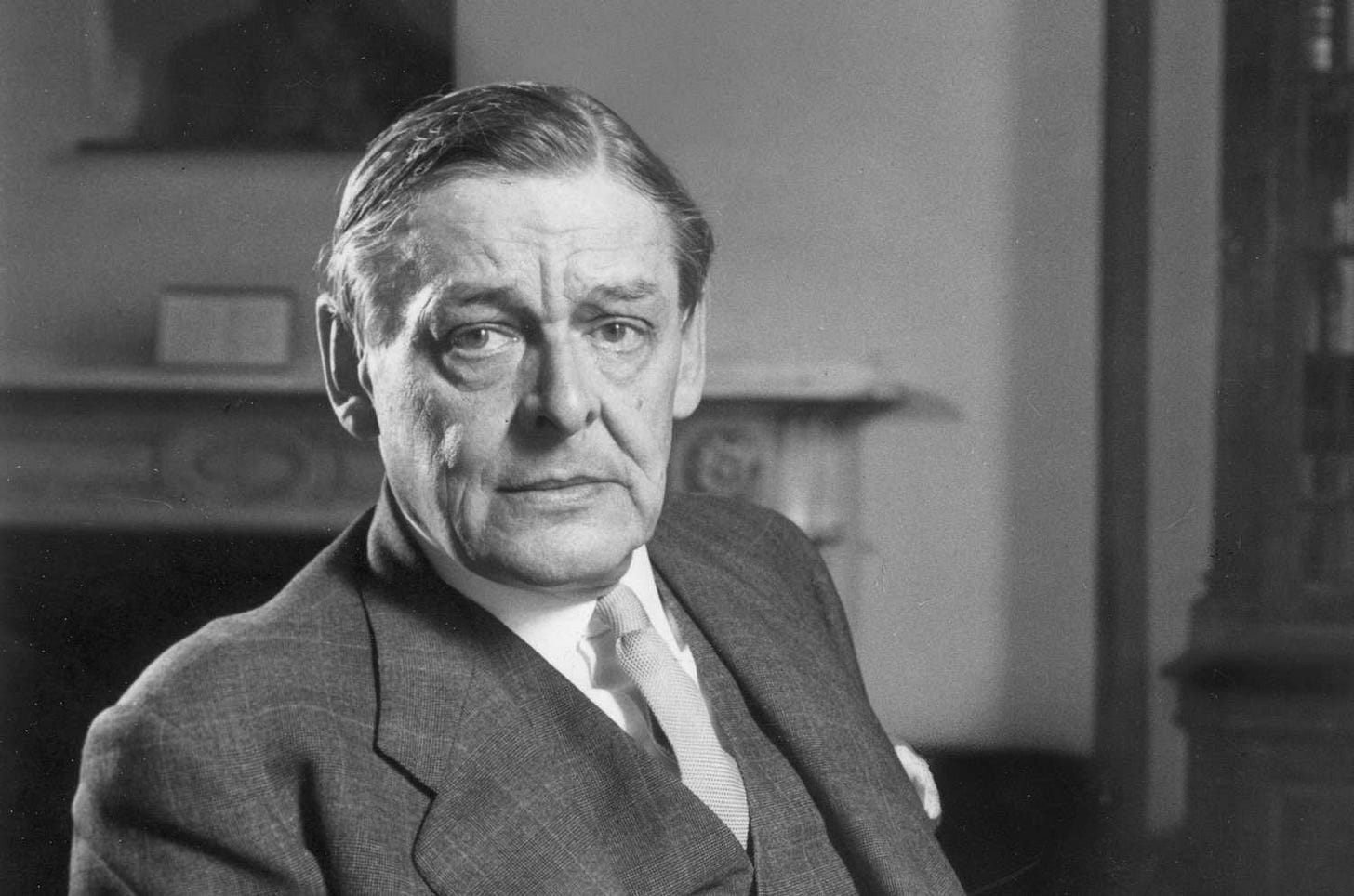Eliot non mi perdonerà
Sunday Noise #002 [Suno+Udio]
Nuova domenica passata a far rumore (chiamarla musica, sarebbe troppo). Ho provato a mettere in musica due liriche di T.S. Eliot (che per quello che ho fatto alla sua poesia, non mi perdonerà mai) e le bozze dei risultati le potete ascoltare qui sotto. Scrivo “bozze” perché non ho scaricato gli stem per ottimizzarli e rimixarli, ma solo il premixato di default dei sistemi.
Ho voluto provare i nuovi modelli di Suno e Udio, con cui avevo già realizzato Be Fit e Do Not Go Gentle. Ora entrambi permettono composizioni molto più lunghe, anche in un solo passaggio.
La qualità di Udio continua a sembrarmi superiore.
01 - And down we went
April is the cruellest month, breeding
Lilacs out of the dead land, mixing
Memory and desire, stirring
Dull roots with spring rain.
Winter kept us warm, covering
Earth in forgetful snow, feeding
A little life with dried tubers.
Summer surprised us, coming over the Starnbergersee
With a shower of rain; we stopped in the colonnade,
And went on in sunlight, into the Hofgarten,
And drank coffee, and talked for an hour.
Bin gar keine Russin, stamm’ aus Litauen, echt deutsch.
And when we were children, staying at the archduke’s,
My cousin’s, he took me out on a sled,
And I was frightened. He said, Marie,
Marie, hold on tight. And down we went.
In the mountains, there you feel free.
I read, much of the night, and go south in the winter.
02 - April is the cruellest month
La stessa lirica, ma questa volta ho costruito un background strumentale da nulla e ho cercato di programmare la parte vocale perché “recitasse” (virgolette d’obbligo”). Resta una macchina, ma certi passaggi sono comunque sorprendenti.
03 - Only in time
Ecco, questo è davvero il peccato più grave: T.S. non mi perdonerà mai di avere usato la quinta stanza di Burnt Norton per una specie di rap. Non me lo perdono neppure io, perché è davvero la sua lirica che amo di più, ma sono rimasto colpito da quello che l’IA ha deciso di fare sul finale.
Words move, music moves
Only in time; but that which is only living
Can only die. Words, after speech, reach
Into the silence. Only by the form, the pattern,
Can words or music reach
The stillness, as a Chinese jar still
Moves perpetually in its stillness.
Not the stillness of the violin, while the note lasts,
Not that only, but the co-existence,
Or say that the end precedes the beginning,
And the end and the beginning were always there
Before the beginning and after the end.
And all is always now. Words strain,
Crack and sometimes break, under the burden,
Under the tension, slip, slide, perish,
Will not stay still. Shrieking voices
Scolding, mocking, or merely chattering,
Always assail them. The Word in the desert
Is most attacked by voices of temptation,
The crying shadow in the funeral dance,
The loud lament of the disconsolate chimera.
The detail of the pattern is movement,
As in the figure of the ten stairs.
Desire itself is movement
Not in itself desirable;
Love is itself unmoving,
Only the cause and end of movement,
Timeless, and undesiring
Except in the aspect of time
Caught in the form of limitation
Between un-being and being.
Sudden in a shaft of sunlight
Even while the dust moves
There rises the hidden laughter
Of children in the foliage
Quick now, here, now, always-
Ridiculous the waste sad time
Stretching before and after.


Semplicemente magnifico